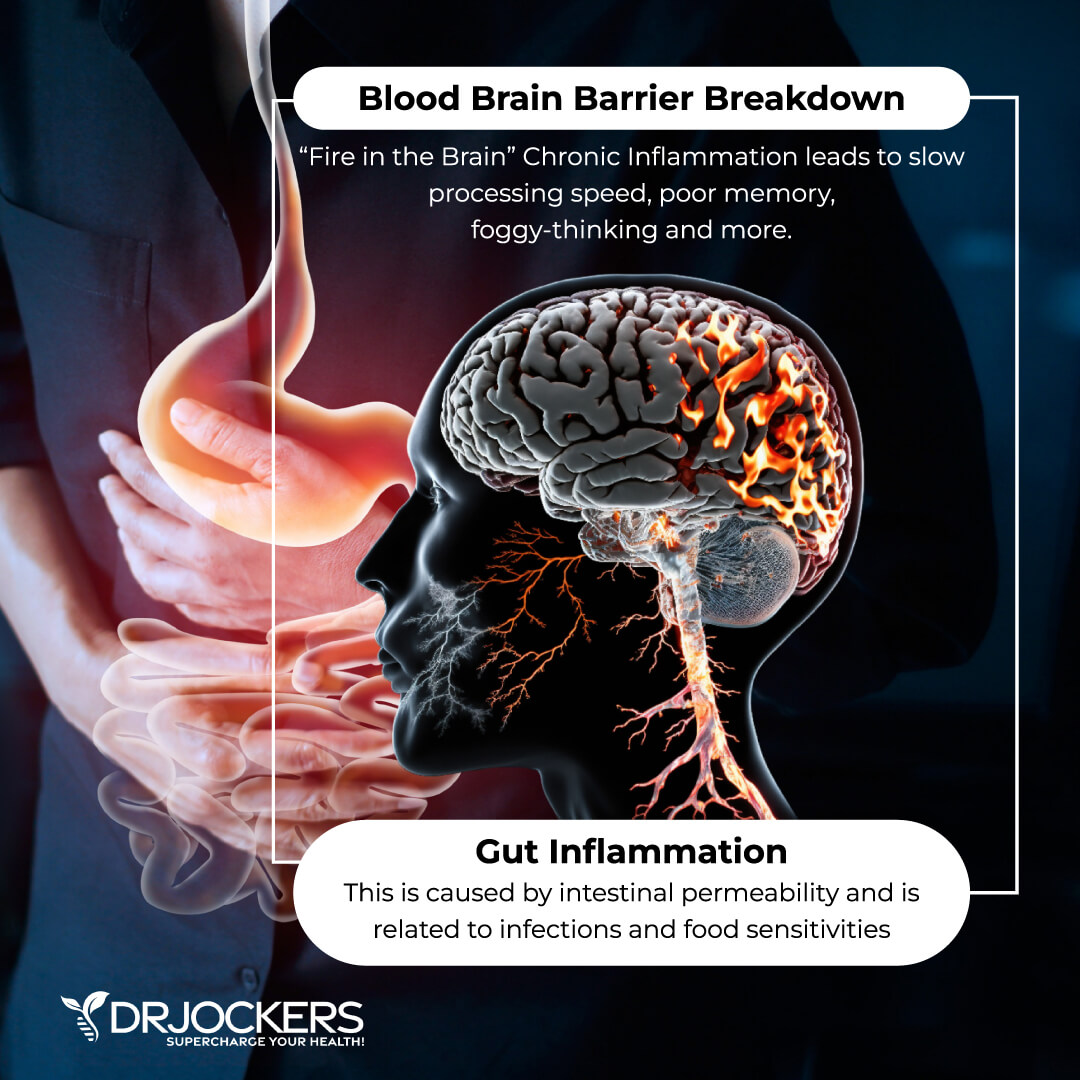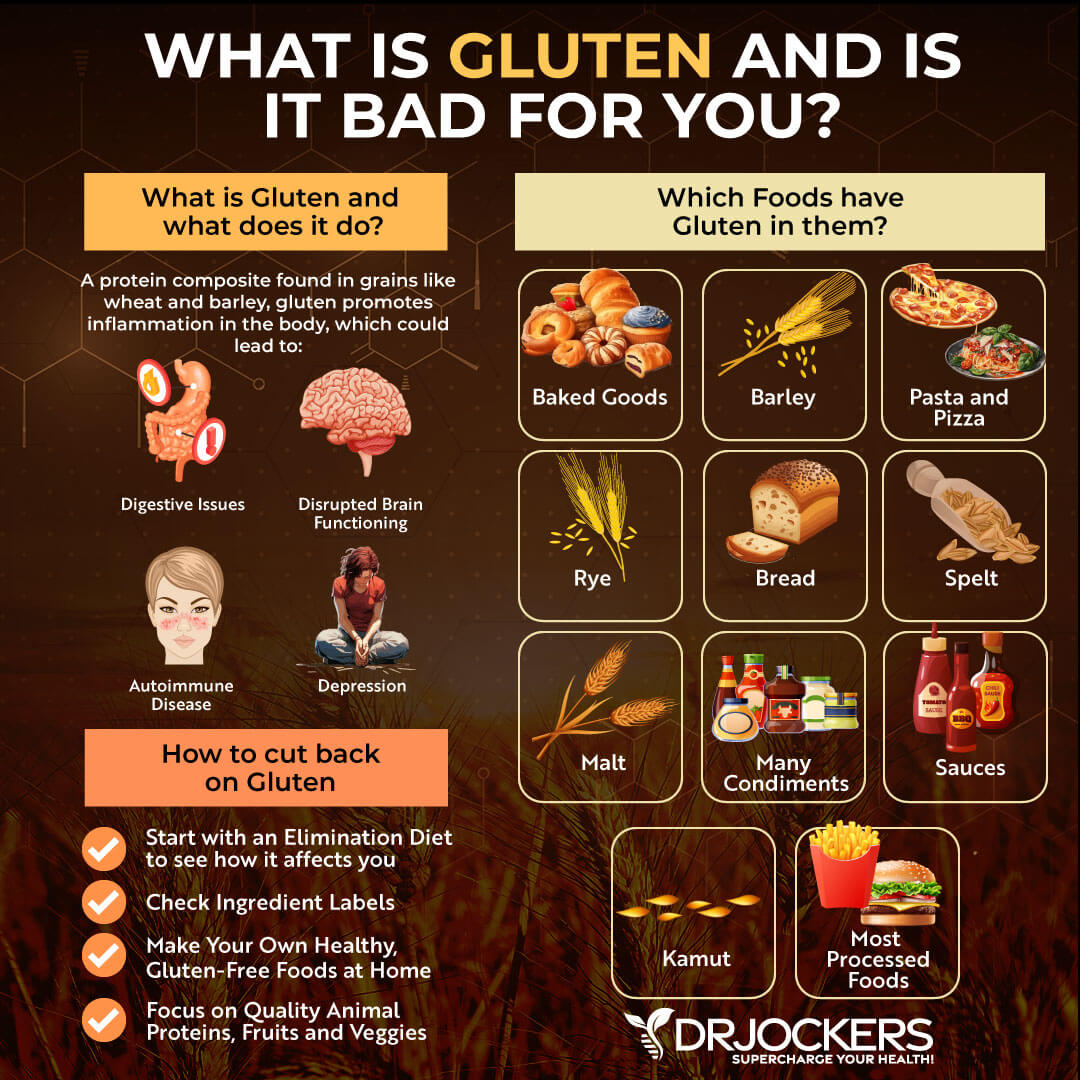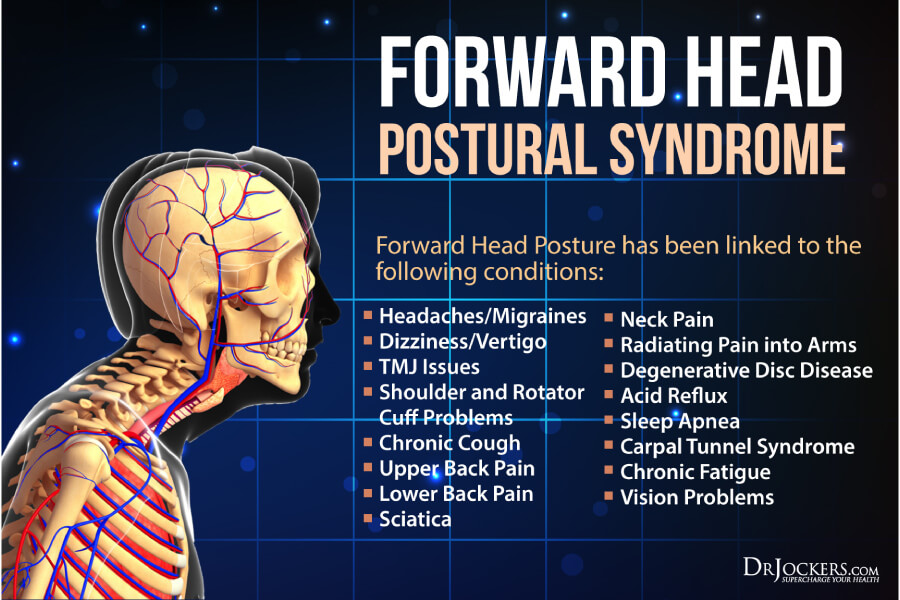 Are You Causing Brain Inflammation?
Are You Causing Brain Inflammation?
Brain inflammation is a serious problem that is impacting a large percentage of our society. The brain and neurological tissue are extremely sensitive regions of the body that are highly susceptible to damage. One of the ways that our body protects itself from the threat of infection is through an immune process called inflammation. When inflammation affects the brain it can do some serious damage. In this article, you will discover if you are causing brain inflammation with your lifestyle activities.
There are many things that throw off our immune balance and lead to chronic inflammation that can seep into our neurological tissue and cause problems. Our culture is loaded with brain poison. Some of the most damaging brain poisons include the protein gluten, unfermented soy, blood sugar imbalances, poor posture, & a sedentary lifestyle.

Gluten Sensitivity:
One of the most common nutritional/toxicity issues in our society today deals with the common protein found in wheat, barley, rye, oats, kamut, and spelt. Many people in our society have a gluten sensitivity. When they are exposed to gluten, their body has differing degrees of inflammatory responses. Some individuals have mild reactions associated with brain inflammation while others have severe reactions.
The most vulnerable tissue to the inflammatory cascade in response to gluten is the brain & nervous system. The immune molecules that are secreted (cytokines) destroy brain tissue and cause massive neurological damage. The most common symptom associated with this reaction is “brain fog,” memory problems, and mental fatigue (1, 2, 3).

Unfermented Soy:
One of soy’s primary isoflavones, genistein, has been shown to inhibit the enzyme tyrosine kinase in the brain. The highest amounts of tyrosine kinases are found in the hippocampus, a brain region that is essential to learning & memory. High soy consumption actually blocks this mechanism of memory formation (4, 5).
Several studies have associated high intakes of tofu and other unfermented soy products with increased risk of dementia and cognitive impairments (5, 6, 7). On the flip side, fermented soy products such as tempeh are associated with greater cognitive abilities.
Researchers hypothesize that this is due to the deep fermentation process removing enzyme inhibitors and phytoestrogens. In addition, this process increases folate, which is a critical nutrient for brain and nervous system function.

Blood Sugar Imbalance:
The brain depends on a continual supply of glucose for energy. A 2003 study in the Proceedings of the National Academy of Sciences found that people’s memory is harmed by poor blood sugar metabolism (8).
The slower the sugar metabolism in the body, the less fuel is available for the brain to store memories. Stable blood sugar levels are critical for healthy brain and neuronal cells that fire quickly and efficiently. Abnormal blood sugar levels also cause neuronal damage and weaken the protective blood-brain barrier. This makes for easy passage of different toxins and other particles that will disrupt brain function and cause increased levels of brain inflammation.
A mechanism for Alzheimer’s disease is that of poor blood sugar metabolism. This pre-diabetic disorder opens the door in the blood-brain barrier for toxic aluminum particles to cross-over and accumulate in the sensitive regions of the temporal lobe (9, 10, 11).

Sedentary Living & Poor Posture:
The brain depends on oxygen and activation from muscle and joint receptors on a continual basis. A lack of motion equals a lack of oxygen generating energy getting up into the brain. Research has also shown that a sedentary lifestyle impairs the brain’s ability to self-repair by reducing serum IGF-1 levels (12).
Poor posture and subluxated spinal vertebrae cause spinal joint receptors to fire abnormal, corrupted feedback patterns into the brain (13). This causes further brain-body feedback problems and disrupted movement patterns in the body. Chronically poor posture is one of the most detrimental factors for brain function and increases brain inflammation. Here are 5 easy exercises to do regularly to improve your posture.

If you want to work with a functional health coach, I recommend this article with tips on how to find a great coach. On our website, we offer long-distance functional health coaching programs. For further support with your health goals, just reach out—our fantastic coaches are here to support your journey.

Inflammation Crushing Ebundle
The Inflammation Crushing Ebundle is designed to help you improve your brain, liver, immune system and discover the healing strategies, foods and recipes to burn fat, reduce inflammation and Thrive in Life!
As a doctor of natural medicine, I have spent the past 20 years studying the best healing strategies and worked with hundreds of coaching clients, helping them overcome chronic health conditions and optimize their overall health.
In our Inflammation Crushing Ebundle, I have put together my very best strategies to reduce inflammation and optimize your healing potential. Take a look at what you will get inside these valuable guides below!





Dr. Jockers, is Gluten Free Rolled Oats a good option?
Too many carbs that throw off your blood sugar levels.
Dr. Jockers, I was reading the ingredients in Bread for Life Sprouted Grain Tortillas and one of the listed ingredients is Organic Sprouted Soybeans? Can you please shed some light on this and if it is ok to use and why? I would think it isn’t but I am not sure. Thanks so much. I love your site and everything I am learning from you.
I am not a fan of soy even if it is organic. Best to avoid if possible. Sprouted grains do have some other issues such as being high in lectins (WGA) and high in carbs that throw off your blood sugar. Be sure to read: https://drjockers.com/gluten-sensitivity-and-your-brain/
You did not answer the question. Is there a problem with sprouted soybeans?
Not necessarily, there is evidence that fermented soy removes enzyme inhibitors and can have positive health benefits. For some, they are sensitive to free glutamates (which is soy is very high in) and others are sensitive to soy. For those I would not recommend soy, however, most seem to benefit from fermented soy consumption.
Dr Jockers. Is fermented sourdough bread OK?
If you are not dealing with any health issues and it is fully fermented then it can be okay. I would go with heirloom (non-gmo) wheat and ferment it yourself. Some people would likely not tolerate it either way so just be weary of how your body responds to it.
Seriously, how can one relax, be at ease and eat even if you say no to Organic Soy or Sprouted Grains? Wonder how come there is such pickiness when even regular breads are avoided and I usually hear in various sources that Sprouted Grains are healthy. Plus, I am sure you realize that many people are vegan due to their religion, customs and health issues.
Sam
Sam,
Unfortunately, these foods can often cause health problems. Some can tolerate them better than others but I wouldn’t consider them health foods. I would stick with a coconut flour bread or an Einkorn wheat bread and feremnted soy if I was to use those. It is harder to be healthy as a vegan but it can be done.
I have removed all grains, dairy and only eat organic produce and chicken. But I still suffer from hand pains that come mostly in evenings. I have good days and horrible days. I cannot place it to any food sensitivity. Have not lost any weight whatsoever. It has been going on for 7 years. My husband lost 100 pounds and I nothing. I just diagnosed my self with diastasis recti. My belly is really out there. I literaly look like i am 6-9 months pregnant. Do you think this has something to do with my hand pains and lack of weigh loss? I am about 45 pounds overweight. I feel a mess.
Have your doctor do a complete thyroid panel. All those symptoms can be due to hypothyroidism. In the US, this is usually an autoimmune condition called Hashimoto’s Thyroiditis. You may need to be on thyroid hormones. Go to thyroid.about.com for more information. Another resource is stopthethyroidmadness.com
This is an EXCELLENT point Wendy and should absolutely be considered!
if i were you i would try sulfur, wonderful detoxer anf joint pain reliever!
Sarah, I would recommend getting a full complete blood count including a full thyroid and inflammatory marker testing in order to see what the underlying problems are here. You want the tests performed on this panel: https://drjockers.com/total-thyroid-report/
Thanks , will plan on the test. In the mean time do you have a protocal for people that have “diastasis recti?”
Dr I read that “Cancer cells use two major fuels, they use glucose and they use glutamine. Of the two, glutamine is the more powerful stimulant for cancer cell growth.”
That is a powerful stimulant for degenerative brain disorders, a powerful stimulant for cancer growth. You don’t want to do that. There’s a lot better ways to repair the GI tract—they work better and safer and actually inhibit cancer.
I disagree with this Elizabeth. The research is behind L-glutamine as a great support to our health. In individuals who have fast cancer growth, the danger is that L-glutamine can be converted into sugar through gluconeogensis. So it is a sugar converter in individuals with alterted and distorted mitochondrial metabolism. For individuals who do not respond well to it neurologically, it is due to an inability to convert glutamic acid to GABA. This process depends upon B vitamins (especially B6), zinc and taurine. Many people are deficient in these.
Additionally, if an individual has glutamic acid decarboxylase (an enzyme) antibodies, the body destroys the enzyme that converts glutamic acid to GABA. These are the things a good clinician watches out for and that is why we begin slowly and work our way up with L-glutamine.